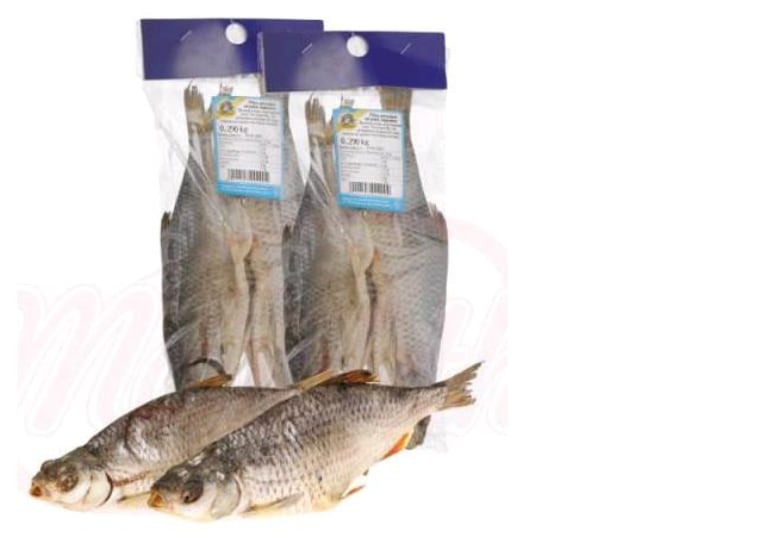Four botulism E cases are in Germany and two are from Spain. Five have a Russian background and one has a Kazakh background.
Foodborne botulism is caused by eating food where germination and multiplication of C. botulinum has occurred as well as neurotoxin production.
Salted and dried roach (vobla/Plötze Salz) was distributed to Austria, Belgium, Czech Republic, Denmark, France, Germany, Ireland, Italy, Norway, Portugal, Slovenia, Spain, Sweden, Switzerland and the UK.
It was from the Netherlands and Lithuania with raw material from Poland.
Positive product and distribution maze
Germany reported two laboratory-confirmed cases of foodborne botulism BoNT -type E in adult males from two neighbouring states and stool samples were confirmed positive for gene-encoding BoNT E in the German Consultant Laboratory for botulism.

Two fish samples from a patient’s home in Germany were tested with real-time PCR and positive for the BoNT E -gene. Colonies of Clostridium botulinum isolated from these were also positive to BoNT E -gene. The two samples were negative when tested with mouse-bioassay.
The first two German cases had the fish from separate locations of the same chain of grocery stores belonging to Monolith Süd, which received it from a producer in the Netherlands, named by authorities as M de Groot & Zn BV based in Volendam.
Monolith Süd also received dried and salted roach from two producers in Lithuania, however investigations so far shows no evidence of their involvement in outbreak cases.
The German wholesaler distributed the fish from the Dutch producer to Germany, France, Italy and two wholesalers in Spain.
The Dutch producer also delivered fish to other wholesalers in Germany and the UK.
Each of these German wholesalers re-distributed the fish to Germany and other countries, including Austria, Belgium, the Czech Republic, Denmark, Ireland, Portugal, Slovenia, Sweden and Switzerland.
Sweden further distributed the product from one German wholesaler to Norway.
Monolith UK recalled its Chilled Dried Salted Common Roach because of concerns over procedures in place to control Clostridium botulinum in early December.
Dutch authorities said M de Groot & Zn collected single samples from different batches of implicated product to test for the BoNT gene using real-time PCR. All samples were negative for the gene coding for botulinum neurotoxins A, B, E and F.
It did not distribute the implicated product within the domestic market.
Both Spanish cases had eaten dried and salted roach which was distributed from an unnamed Spanish wholesaler and manufactured by the Dutch producer.
They were Russian nationals with residence in Spain but clinical samples tested were negative.
Botulism in Europe
Botulism neurotoxin type E is not uncommon in fish products poorly eviscerated and/or self-salted at home.
Spores produced by the bacteria Clostridium botulinum are heat-resistant and in the absence of oxygen they germinate, grow and then excrete toxins.
“In view of the rapid initiation of recalls and targeted public warnings, the risk that new cases linked to the outbreak will appear in the EU/EEA is considered to be very low,” said the European Centre for Disease Prevention and Control (ECDC).
“The main potential residual risk of exposure relates to consumers still keeping the product at home who may not been made aware of the public warnings, or stores that may not have received notification of the recall and are continuing to sell the implicated fish product.”
Botulism is a rare disease in Europe, with 85 to 137 confirmed cases reported to ECDC annually during 2010 - 2015. Italy accounted for 28% of these followed by Romania (19%).
In 2015, 24 outbreaks caused by C. botulinum toxins were reported by 10 EU Member States, involving 60 cases, 43 of which were hospitalised.
This number increased from 2014 when there were nine outbreaks.
